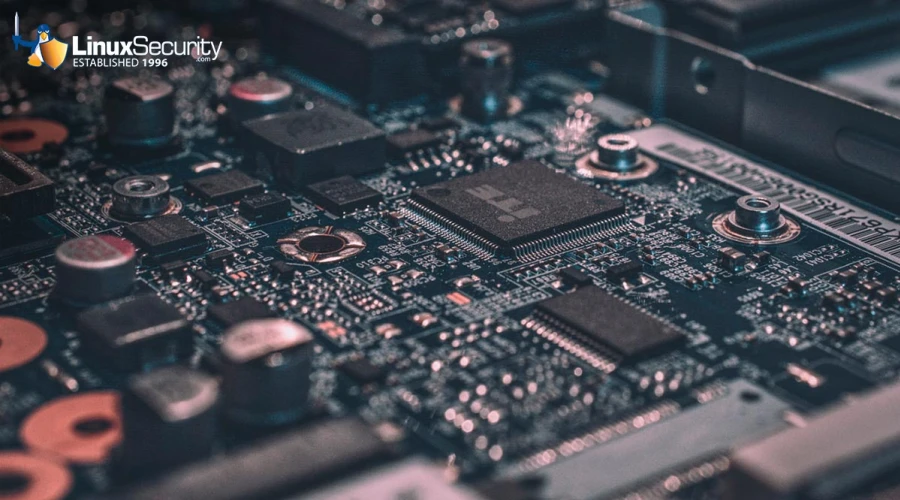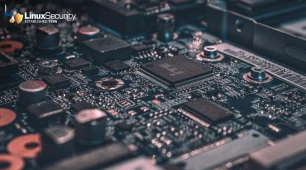
Intel recently issued critical updates to its CPU microcode, providing fixes for numerous security vulnerabilities across a broad selection of its processors. As part of November 2024's Patch Tuesday event, these updates aim to mitigate two newly disclosed vulnerabilities while offering fixes for some older, previously identified issues.
Addressing these issues promptly is essential for Linux admins to maintain system security and stability. I'll explain the recent Intel updates, their impact on Linux administration, and how you can obtain them.
New Security Advisories
Intel SA-01101 is classified as a medium-severity denial of service (DoS) issue that could impact specific 4th and 5th Generation Xeon Scalable processors. If exploited, these faulty finite state machines (FSMs) within hardware logic could allow malicious actors to cause denial of service conditions that effectively disrupt regular system operation.
Denial-of-service attacks are generally less severe than data breaches or privilege escalations attacks; however, they still pose significant threats, especially in environments that depend on uptime and availability, such as server environments or cloud infrastructure utilizing Intel Xeon processors. Such interruptions could result in downtime, service disruptions, and revenue or credibility losses for an organization.
Updates to Previously Disclosed Issues
 Source: Phoronix Intel has also issued advisories regarding two previously discovered vulnerabilities—Intel SA-01097 and SA-01103—which ensure that systems running older generations of Intel hardware remain protected against known threats.
Source: Phoronix Intel has also issued advisories regarding two previously discovered vulnerabilities—Intel SA-01097 and SA-01103—which ensure that systems running older generations of Intel hardware remain protected against known threats.
Furthermore, this microcode update includes various fixes for functional issues in Intel Core Ultra CPUs, 12th Generation Core Processors (11th, 13th, and 14th Gen Core), 3rd, 4th, and 5th Gen Xeon Scalable processors, and D-1700, D-1800, and D-2700 processors. These updates help ensure these processors maintain their overall performance and reliability post-security patch installation.
Understanding the Impact of These Updates on Linux Admins
Linux administrators recognize the significance of microcode updates for CPU microcode vulnerabilities. These vulnerabilities are incredibly complex to address as they require updates at both the OS and firmware levels. Intel's recent updates affect our system administration in the following ways:
Security and Stability
 The primary implication of applying these patches for Linux systems running Intel CPUs with vulnerabilities will be improved security. These patches protect against potential attackers exploiting these weaknesses, especially in data centers, cloud environments, and enterprise servers.
The primary implication of applying these patches for Linux systems running Intel CPUs with vulnerabilities will be improved security. These patches protect against potential attackers exploiting these weaknesses, especially in data centers, cloud environments, and enterprise servers.
Stability is another essential concern. By mitigating denial of service conditions, systems are less likely to experience unexpected downtime—a crucial factor in maintaining high availability and service reliability. Systems administrators can thus ensure a more reliable operation of services.
Performance
While security patches are crucial, their effects may also adversely impact system performance. Administrators must be wary of potential performance implications when applying these updates. Some microcode updates have historically led to performance regressions, although Intel strives to mitigate these adverse reactions.
Implementing These Updates
Intel has posted its new CPU microcode binaries on GitHub, so administrators can download authenticated microcode updates directly from its official repository to ensure they apply only genuine versions.
Our Final Thoughts on These Recent Microcode Updates
Intel's November 2024 CPU microcode update brings critical fixes for recently discovered and previously disclosed vulnerabilities, making them essential to maintain the security and stability of systems using Intel CPUs. Applying these updates can protect your infrastructure from DDoS attacks or privilege escalation vulnerabilities, providing a more reliable and safe operating environment for you and your systems.



















